With Election Day less than a month away, CEA President Kate Dias says, “We need to pay attention to municipal elections, because they are the closest and most impactful when it comes to your school and budget. Pay close attention to who’s running for your board of education. That’s where a lot of the decisions about what and how our students are taught get settled. Everyone looks at the major races, but it’s often local elections that determine what you’ll be teaching and what your school year will look like.”
She adds, “This November 2, I hope you will join educators like me in voting for candidates who support honesty and inclusion. We have to affirm our commitment to the values of academic integrity and honesty that have been the hallmarks of American education for decades. Working together, we can, and must, make a brighter tomorrow for us all.”
Under the current wave of anti-education legislation around the United States, critical stories of racial injustice are being pushed out of classrooms. Teachers are being intimidated or censored, and public education is under attack. Although statewide legislation and policies in Connecticut support culturally relevant, honest curriculum, battles at the local level can still pose a threat. Candidates for local school boards wield great power over what is taught in their schools—and what is not.
CEA spoke to several active and retired teachers running for seats on their local board of education or town council to hear why they are running and what they hope to accomplish. Educators are running in every corner of the state, including Branford, Hamden, Milford, New London, Norwich, Southington, Vernon, West Hartford, and Windsor Locks.
Meet some of those teacher candidates here.
Clare Neseralla, CREC STEM Curriculum Coach and West Hartford Board of Education Candidate
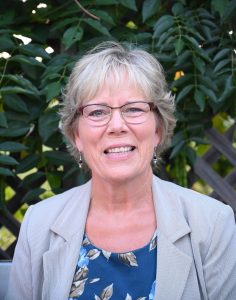 A CREC Discovery Academy teacher since 2015, Clare Nesaralla previously taught in West Hartford, where she lives and where she’s running for a seat on the town’s board of education.
A CREC Discovery Academy teacher since 2015, Clare Nesaralla previously taught in West Hartford, where she lives and where she’s running for a seat on the town’s board of education.
“I want to bring my dedication to education back home and become more civically involved,” she says. “I know my experience in education, culturally relevant pedagogy, diversity and equity training, and LGBTQ initiatives will bring a valuable voice.”
Neseralla is particularly interested in improving conditions for people of color, immigrants, and those with disabilities.
“As a parent of a daughter with special needs,” she says, “I understand special education services as both a classroom teacher and as a parent. I believe in the importance of early learning and will advocate for increasing pre-K opportunities in our schools. By serving on the board of education I can work toward assuring West Hartford Public Schools continue to be a leader in quality education for all students, no matter their background, socioeconomic status, or ability.”
Having recently completed facilitator training for conversations on race, she adds, “I am fortunate to work for and live in districts that don’t shy away from teaching about equity and diversity. Each district has developed equity and anti-racism statements that share where they stand, and all staff are asked to make a commitment to stand up to injustices. By listening, discussing, and looking critically at our nation’s history, we can understand the perspectives of others and avoid policies and practices that exclude and marginalize our students and colleagues.”
A silver lining of the COVID pandemic, says Neseralla, is that teachers are now seen as essential employees.
“We worked harder and accomplished more than we ever thought possible,” she explains. “Teachers juggled parenting while teaching and engaged students remotely with creativity that awed parents. This school year, students love being in person, and I am so thankful we are all back together. There is a lot of work ahead, and together we will address the social emotional needs of everyone in our schools. We will follow science, wear masks, stay safe as possible, and do our part to get through this challenging time and meet the needs of all students.”
Not everyone agrees on how schools should operate, however. And, Neseralla points out, not everyone who has the right to vote exercises that right.
“Remember, you have a say about who will represent you. We are in a critical time, where our voices can be drowned out by a few loud voices. Candidates who represent your views or perspectives need your support so that future decisions fit with how you think children should be educated.”
Bob Brown, Retired Teacher and Southington Board of Education Candidate
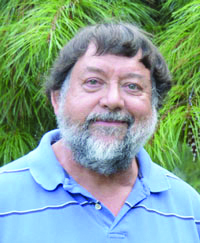 Retired social studies teacher Bob Brown, chair of the curriculum committee for Southington’s Board of Education, is running for his fourth term on the board. His 41 years as a classroom teacher, he says, provide a clear understanding of what teachers and students need, and serving as a union leader has helped him negotiate board contracts.
Retired social studies teacher Bob Brown, chair of the curriculum committee for Southington’s Board of Education, is running for his fourth term on the board. His 41 years as a classroom teacher, he says, provide a clear understanding of what teachers and students need, and serving as a union leader has helped him negotiate board contracts.
“All students deserve a quality education, and I believe social and emotional learning is vital to the education process,” he says. “Students’ education must be prioritized over political considerations.”
Having taught (and, in some cases, written curriculum for) several social studies classes, including world history, civics, Russian and Middle Eastern history, and American culture, Brown explains that there is a great deal of misinformation about what is taught in schools.
“We absolutely should teach about the roles that race and racism have played in U.S. history, in our institutions, laws, government, and social structures. We do not teach that all white students are racist—as several in the public have insisted; we are teaching the facts. Sadly, the subject has become highly politicized, as have several education issues. We face anti-maskers and people who oppose teaching about racism at every board of education meeting. My belief is that every decision the board makes should be based on one guiding principle: what is best for our students and their education.”
Brown adds, “If teachers don’t vote, they face the very real possibility that extremists who seek to politicize education decisions may become the elected majority, because their base will vote. These people very likely will then make decisions based on their political agenda that hinder teachers not only in how they teach but also in their working conditions, benefits, pay, safety, and education funding in general.”
Brett Joly, North Haven Teacher and Branford Board of Education Candidate
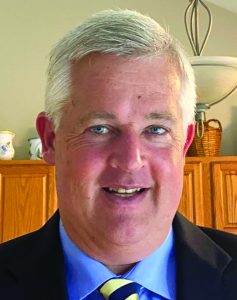 “I have the greatest job in the world—I’m a teacher!” says Branford resident Brett Joly, who teaches foreign language and literature at North Haven Middle School. “I’m running for a six-year term on my town’s board of education because I was disappointed with our school system’s response to the COVID pandemic and felt ignored when I tried to express my ideas about how it could be improved. At one point, I realized that the only way that many people in town and I were going to be heard is if I threw my hat in the ring.”
“I have the greatest job in the world—I’m a teacher!” says Branford resident Brett Joly, who teaches foreign language and literature at North Haven Middle School. “I’m running for a six-year term on my town’s board of education because I was disappointed with our school system’s response to the COVID pandemic and felt ignored when I tried to express my ideas about how it could be improved. At one point, I realized that the only way that many people in town and I were going to be heard is if I threw my hat in the ring.”
“I know firsthand the importance of recognizing and supporting every single person connected to the school system for it to be successful,” he says. “We need to take care of each other and have everyone at the table for our schools to thrive.”
On the subject of teaching about issues of equity and racial justice, Joly says Branford residents generally recognize the need for students to become critical thinkers and lifelong learners, and he pledges continued support for Branford teachers as they engage students in analyzing sources of information and thinking for themselves.
He adds, “The front lines of the national debates are our boards of education. Any issue at the national level that you see on a major news network is playing out just down the street at the local board of education meeting. Please, don’t sit out the elections; make your voice heard. Democracy only works if people vote, and this election will be felt by everyone in town. Being a teacher, I plan to listen to the needs of all parties, and especially teachers, when important decisions have to be made.”
Gary Peluchette, Retired Teacher and Milford Board of Education Candidate
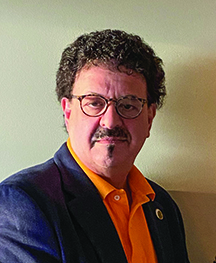 “During my 35-year teaching career,” says former Bridgeport Education Association President Gary Peluchette, “I served as a building delegate, grievance chair, BEA leader, and NEA director. I retired in June of 2020 and wanted to do something in retirement that supported teachers and students. When I was approached to run for the Milford Board of Education, I felt that it was a chance to continue as an advocate for public education. Having been in the classroom gave me the skill set to truly understand what works in a school district and what doesn’t.”
“During my 35-year teaching career,” says former Bridgeport Education Association President Gary Peluchette, “I served as a building delegate, grievance chair, BEA leader, and NEA director. I retired in June of 2020 and wanted to do something in retirement that supported teachers and students. When I was approached to run for the Milford Board of Education, I felt that it was a chance to continue as an advocate for public education. Having been in the classroom gave me the skill set to truly understand what works in a school district and what doesn’t.”
He adds, “Milford Public Schools have been very supportive about teaching historical facts, but the opposition in Milford is trying to derail the teaching of verified history. To all those in public education, I would stress that all elections are important—especially local elections, because they can impact your community the most.”
Lisa Thomas, Retired Teacher and Coventry Town Council Candidate
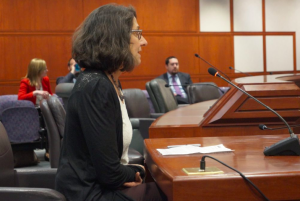 After 37 years as a gifted and talented education specialist in the special education programs of Windsor and Hebron public schools, Lisa Thomas retired from teaching this past June. But with staffing shortages, threats to public education, and the imperative that teachers are recognized as professionals and able to work safely and retire with dignity, she has remained as active as ever in local and statewide politics and education.
After 37 years as a gifted and talented education specialist in the special education programs of Windsor and Hebron public schools, Lisa Thomas retired from teaching this past June. But with staffing shortages, threats to public education, and the imperative that teachers are recognized as professionals and able to work safely and retire with dignity, she has remained as active as ever in local and statewide politics and education.
“After a long career and membership in CEA, I’m a proud member of CEA-Retired,” says Thomas. “I’ve served on the Coventry Town Council since 2007, I’ve testified on education bills before the legislature—right up until the pandemic shutdown, and I was just appointed by Senator Pro Tempore Martin Looney to Connecticut’s Reading Leadership Implementation Council, which implements the activities of a newly established literacy center that oversees reading readiness and curriculum.”
She adds, “As teachers, active or retired, we need to be on the front lines with our voices.”
Recent town council and board of education meetings, Thomas says, have been contentious—and in many cases disruptive, with participants disagreeing on fundamentals such as masking in schools and teaching about racial equity. Perspectives are becoming more extreme, and those with more moderate views are often pushed out.
“If you want to have your values represented,” she advises teachers, “you need to vote.”
As a former Diversity and Equity Team member with the Windsor Public Schools and vice president and negotiating team member of the Hebron Education Association, Thomas feels strongly about standing up for her profession and for honesty in education. The surest ways to do that, she says, are to become involved in your union, in civic life, in your community, and in elections.
“From a personal, individual standpoint, you need to be informed about what’s happening with your pension and health insurance. Once you’re an educator, you’re in it for the long haul. Your passion for education doesn’t go away once you retire; you’re invested in your community, and you should stay connected to it by supporting your school budget and your schools.”
In addition to running for re-election for town council in Coventry, Thomas has been substitute teaching in Tolland and has received requests to fill in at schools in other districts.
“There has been an increase in students coming to school with trauma,” she explains, “and it’s not just urban schools—it’s everywhere. Substitute teachers are not always given that information, and they don’t always know what to expect. They don’t know that chairs may be thrown at them. There are only so many times they’re going to walk into that situation, especially with low rates of pay for substitute teachers. Plus, more recently, there’s the whole COVID piece. People are concerned about going into public spaces and have not been raising their hands to substitute.”
With her years of experience in the classroom, Thomas finds substitute teaching gratifying, and she points out that without experienced educators like her stepping up and filling in, many educators lose their planning time.
“Subbing also gives retired teachers a chance to sample many different areas and levels of teaching,” she says. “I never got to run an art class or be a reading specialist or try to teach a high school math lesson. It’s exciting and a new kind of challenge.”
Recently she filled in for a kindergarten teacher.
“She was a former district teacher of the year, and she left detailed, organized lesson plans,” Thomas says. “She was great, her classroom was welcoming and inclusive, which really touched me, and the class size was only 15 students—which is what real education reform looks like. Having taught at the elementary school level for years, I have a toolbox I can reach into, which makes it easier to step into a classroom. Of course, the first day can be difficult. By noon, kindergartners are ready for a nap! But I can do relaxing mindfulness activities with them, and by the second day, I know all their names, so it gets easier.”







